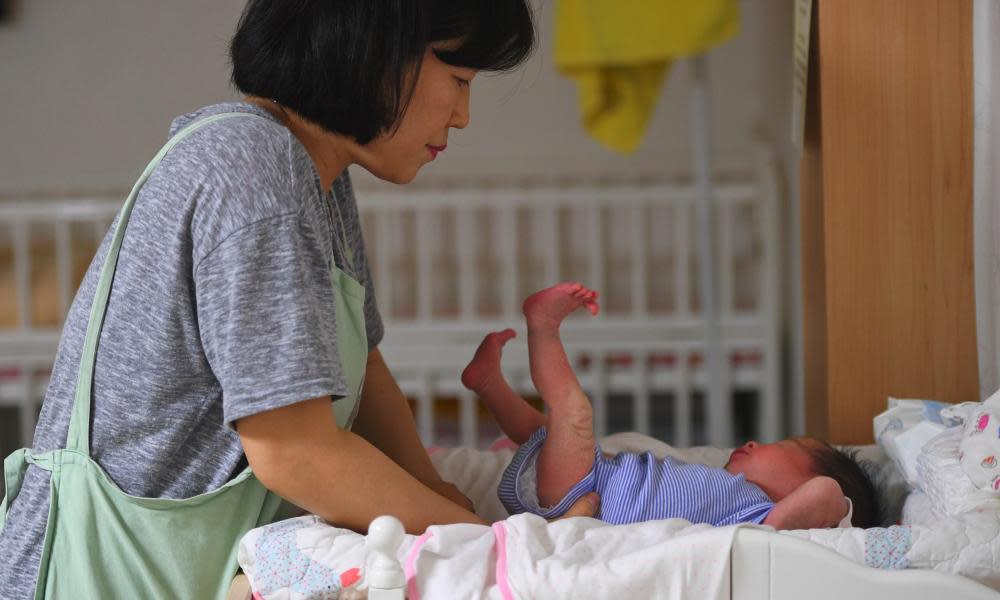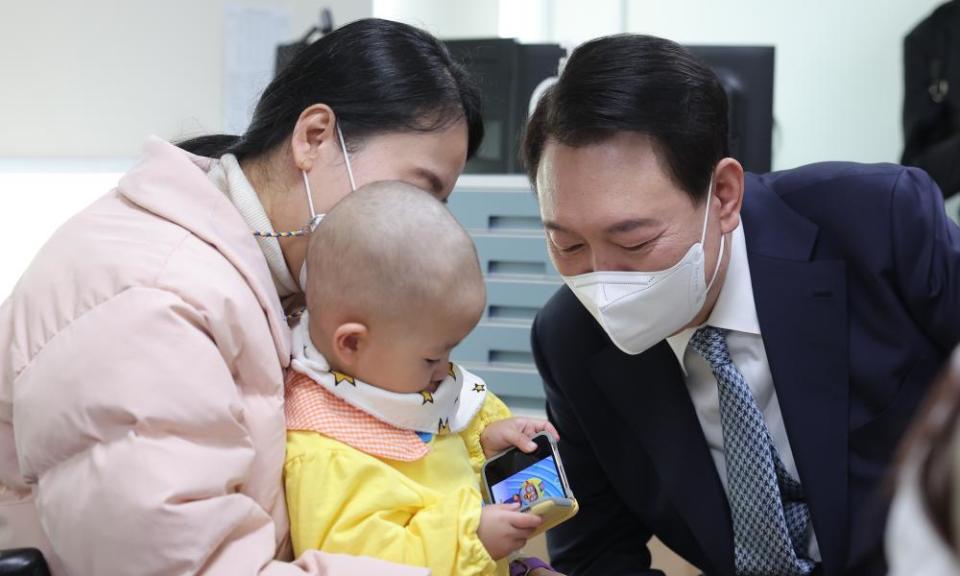Foreign maids and no military service: South Korea criticised over ideas to boost birthrate

South Korea’s search for ways to lift its record low birthrate is becoming increasingly desperate, as the country pushes to reverse the trend that risks sending it toward economic disaster.
Among the proposals to have emerged in recent days are exempting men who have three or more children by the age of 30 from compulsory military conscription. Another is to provide significant “gift” tax breaks to parents based on the number of children they have. A further proposal put forward by a dozen lawmakers would allow foreign domestic workers to work in South Korea for less than the minimum wage, in a bid to relieve families of the burden of household chores.
The moves have angered sections of South Korean society, drawing a range of criticisms from sanctioning modern-day slavery, to favouring men over women. The push for fresh ideas comes as the country continues to grapple with the world’s lowest birthrate, falling to another fresh record last year.
Related: ‘I’m afraid to have children’: fear of an older future in Japan and South Korea
“The government’s proposals show a lack of consideration for women’s needs and perspectives,” said Kim Yun-jeong, a 31-year-old designer and art instructor from Gyeonggi province.
“The gender wage gap in Korea is still significant, and women face many more challenges in balancing work and family life,” she said.
Women’s rights activists slammed the conscription exemption idea as only benefiting men, claiming that the problem was not the low birthrate but discrimination.
“What we need is not exemption from military service, but a society where women’s careers are not interrupted even after giving birth … and it is natural for men to share childcare and housework,” they wrote in a joint statement.
‘Modern-day slavery’
The foreign worker bill, which would exempt those workers from the minimum wage law, has also divided opinion.
Cho Jung-hun, a lawmaker from the minor party Transition Korea who is among the group that introduced the bill, said South Korea needed a “realistic solution for the younger generation, in which dual-income families are the norm.”
The bill cites Singapore as an example, where foreign domestic workers are paid up to 10 times less than the median salary. The system has faced criticisms of abuse and exploitation.
Supporters of the system argue that providing food and board makes it a better deal than what these workers could receive in their home countries.
The conservative newspaper Chosun Ilbo has backed the bill.
“In this urgent situation, if we do not even attempt bold and diverse childcare measures, we will be even more irresponsible,” the paper said in an editorial.
The minor opposition Justice party slammed the move as being akin to “modern-day slavery” and an attempt to “legalise racial discrimination.” Labour unionists called it “anachronistic.”
It is not the first time the country’s low birthrate has been the topic of controversy.
President Yoon Suk Yeol previously suggested the cause was related to feminism, while the speaker of the National Assembly, Kim Jin-pyo, pointed to homosexuality, suggesting the dangerous practice of gay conversion therapy as a solution.
Prior to becoming minister of trade, Lee Chang-yang suggested imposing a levy on financially capable households that do not have children. There was an instance where a city government encouraged marriages between rural bachelors who were “past their prime marrying age” and young Vietnamese students to boost the population.
16 years of policies have ‘failed’, says president
While the latest proposals have drawn criticism, South Korea is under increasing pressure to address its languishing birthrate.
The issue is exacerbating the challenges posed by an ageing population and is predicted to have a negative impact on the country’s economy, labour force, and defence capabilities.
President Yoon has demanded that the government come up with “bold and sure measures” to tackle the issue. His office is expected to announce a long-term strategy within the next few months.
The Yoon administration has already increased the monthly allowance for parents with babies up to a year old to 700,000 won ($535; £440). This amount is set to increase to 1m won next year.
In a meeting on Tuesday to address the issue, the president declared that the spending of 280tn won over the past 16 years to reverse the declining birthrate had “failed”, noting that the issue was “intertwined … with social issues” such as welfare, education, jobs, housing, and women’s pursuit of economic activities.

Labour rights groups have found that nearly half of workers are unable to use their legally guaranteed parental leave due to concerns over job security, particularly among vulnerable workers.
South Korea has some of the longest work hours in the developed world and is consistently ranked as one of the worst places for women to pursue equal opportunities in the workplace.
President Yoon’s recent policy to raise the maximum weekly working time to 69 hours was met with strong opposition from millennials and working parents who questioned when they would have the time to raise a child, prompting him to make a U-turn.
Still, some remain sceptical that Yoon’s next policy package will be effective in arresting the crisis.
Assessing the president’s vision outlined on Tuesday, the Hankyoreh newspaper noted that the words “gender equality” were conspicuously absent.
“With the government’s stance against gender equality, such as pushing to abolish the gender equality ministry, the response to the low birthrate will inevitably be a futile effort,” it said.

 Yahoo News
Yahoo News 
